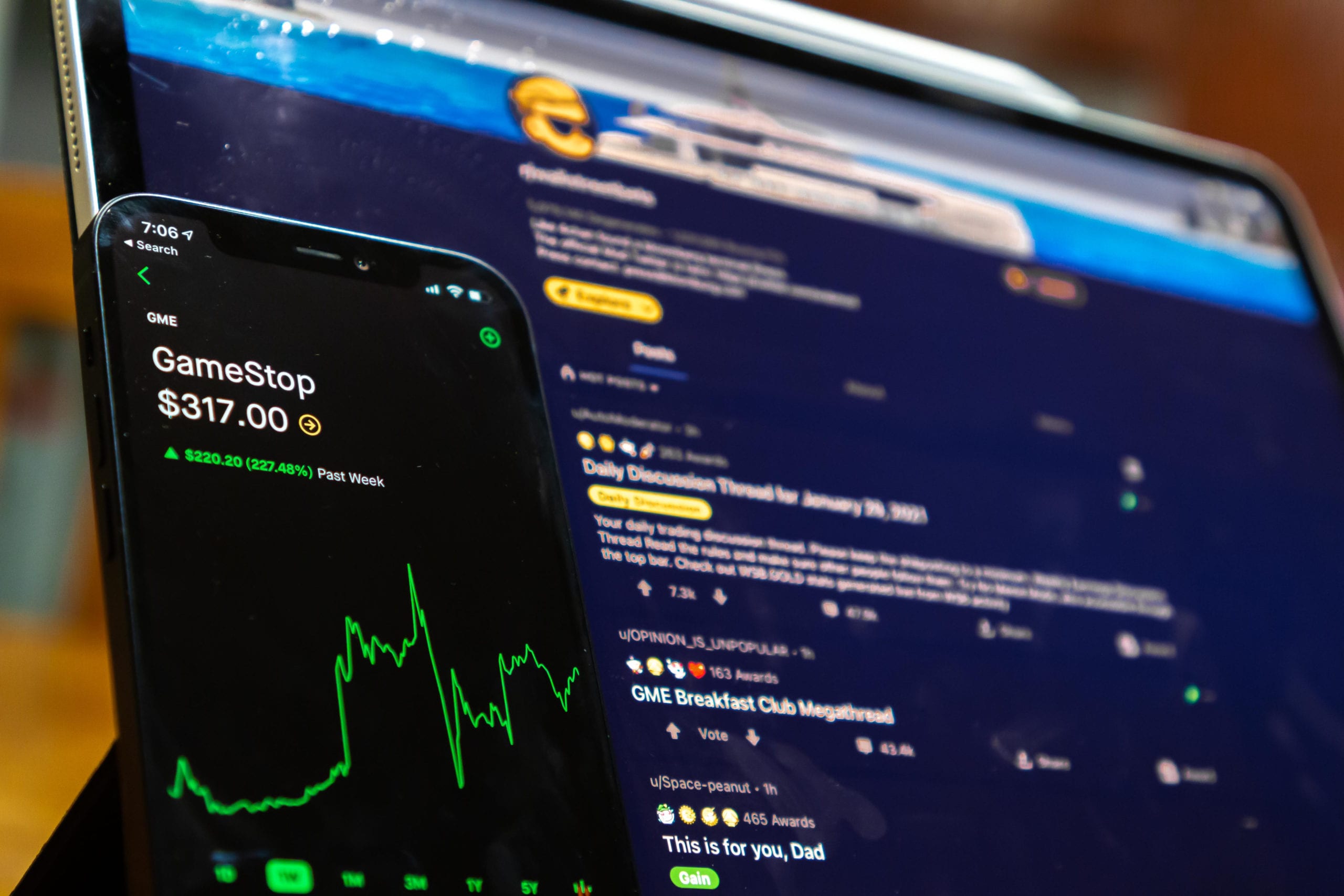
no description

no description
By Judy Loy, Registered Investment Advisor, ChFC®, RICP® and CEO of Nestlerode & Loy, Inc.
The 2021 stock market has had more drama than all the “Real Housewives” franchises put together, and that is saying something given the Salt Lake City addition. I will go through some extremely complicated matters in this article and will try to be as plain-speaking as possible. This also means I will not go into depth with the subject matter.
In the Robin Hood legends, the outlaw takes from the rich and gives to the poor. Robinhood, the app and website, is named after this anti-hero because it claims to “democratize finance for all.” It permits investors to use small amounts to buy stocks, typically without a commission. Robinhood and other large firms receive ‘payment for order flow’, which means rather than getting paid by their client, the investor, they are paid through directing orders to different parties for trade execution of their client orders. Robinhood is currently a private company but plans to go public this year, possibly in the second quarter.
The company faced headlines as its investors had a ‘Robin Hood moment’ of taking down a hedge fund. A hedge fund is a pooled investment fund that makes extensive use of complex trading, leverage, short selling, and derivatives. This is a high-risk endeavor and statistics show most hedge funds last about five years and one in three fail on an annual basis.
Our story begins with Melvin Capital Management, a hedge fund, with a short position in shares of GameStop (GME). Short selling is betting that a stock will drop in price and to do so, a hedge fund borrows shares of stock and immediately sells them. At some point, the shares must be returned (because they were “borrowed”), so the hedge fund eventually buys back the shares on the market at what they believe will be a lower price. It is still a buy low and sell high but in reverse order. The issue is that buying a stock has a limited loss; you only go to zero and lose whatever you invested (called buying long). A short can buy at a $1 and the stock can go as high as the market permits. Thus, a short seller technically has unlimited loss potential. Therefore, my personal opinion is short selling is high risk and not for many people.
The second part of our story unfolds with Reddit, a private company and social media website/app that allows voting on users’ content. In late January 2021, a user in one Reddit community forum suggested that small investors do a short squeeze. A short squeeze is when a stock jumps higher, which forces hedge funds that bet against the stock in a short sell to “cover short” positions. The Reddit user knew that Melvin Capital and other hedge funds were short GameStop (GME) stock, betting it would go down. The suggestion to buy GameStop stock and drive the price up on the short sellers is called a short squeeze.
The plan worked. Robinhood became a main platform for the Reddit users and others who followed their lead to buy GameStop shares in such volume that the share price had a gain of 400% at one point. Because the price went up, Melvin Capital Management had to “cover their short position,” which means they had to buy back the stock they sold. Thus, buying high after selling low. Melvin Capital lost 53% in January due to the “short squeeze.”
On the flip side, many Robinhood investors made quick money as the price moved up. There are heartening stories of using the gains to pay off credit card debt and student loans.
My personal thought on the story is that any manipulation in the stock market takes away from serious investors. Many believe investing in stocks is like gambling and this reinforces that outlook. Yet, investing in equities is a way to retire comfortably, keep up with inflation and continue to live your lifestyle from pre-retirement. As with any bubble or manipulation, someone purchased GameStop (GME) at the high and is sitting on loss, simply because they followed the herd and got in at the wrong time. The bottom line is that long-term you invest, you do not bet.
All investing is subject to risk, including possible loss of the money you invest. Nothing in this article should be construed as investment or retirement advice. Always consult with a professional advisor and consider your risk tolerance and time to invest when making investment decisions.
Receive all the latest news and events right to your inbox.

80% of consumers turn to directories with reviews to find a local business.